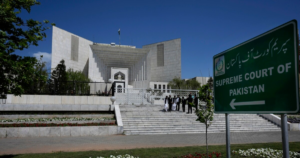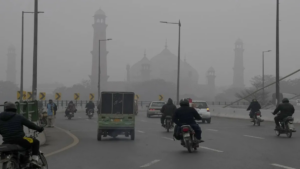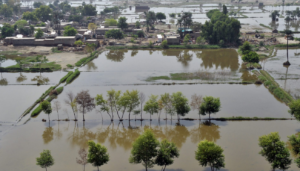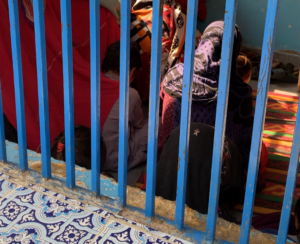
Khamenei says France’s history shows its claims of championing human rights and freedom of expression are false.
Tehran, Iran – Iran’s Supreme Leader Ali Hosseini Khamenei has condemned France and other European governments for supporting the publication of caricatures of the Prophet Muhammad and has rejected their claims of defending freedom of expression.
In a televised speech on Tuesday to mark the Prophet’s birthday, Khamenei denounced the “bitter and ugly” official support behind caricatures published by French satirical magazine Charlie Hebdo.
“This is not just a downfall of French art, this is the politics of a government that is supporting this wrong act. This is a political figure who explicitly supports this,” Khamenei said, in an apparent reference to French President Emmanuel Macron.
Citing freedom of expression, French and European leaders have backed the right to publish caricatures of the Prophet, who is deeply revered by Muslims and whose visual depiction is forbidden in Islam.
The caricatures were cited as the reason behind a deadly attack launched on the magazine’s offices in early 2015 by al-Qaeda-linked fighters.
Last month, French teacher Samuel Paty was murdered in broad daylight near his school in a Paris suburb after he showed the caricatures to his students as part of a discussion on freedom of expression.
Khamenei on Tuesday said the French government should have expressed support and condolences for the murder victim, but allowing the caricatures to be published was wrong.
“They say a person has been killed. Well, express condolences and kindness for him. Why do you explicitly support that vile caricature?”
The supreme leader also supported Muslim anger and protests over the row, saying it shows they are “alive”.
Muslims around the world have also shown their indignation over Macron’s recent comments in which he said Islam is a “religion in crisis“.
Muslim leaders have criticised the remarks, people have protested and a campaign to boycott French goods has been launched in several countries.
In Iran, a public protest was held in front of the French embassy in Tehran’s Neauphle-le-Chateau street on October 28.
In an exclusive interview with Al Jazeera last week, Macron said he understands and respects the feelings of Muslims, but added that he is trying to fight a “radical Islam” that is a threat to all, especially Muslims.
He also said the caricatures “are not a governmental project” and have “emerged from free and independent newspapers that are not affiliated with the government”.
‘Two sides of the same coin’
In his Tuesday speech, Khamenei rejected claims by French and European leaders that they are defending freedom of expression and human rights.
“The French government’s politics are the same that provides refuge to some of the most savage and violent terrorists in the world,” he said in an apparent reference to the members of the Mujahedin-e-Khalq (MEK).
The MEK, which is deemed a “terrorist” organisation by Iran, has headquarters in Paris and in other European countries. The organisation, which advocates regime change in Iran, was on the United States’s terror list from 1997 to 2012.
Moreover, Khamenei said, France was one of the Western nations that provided the most financial and material support to “blood-thirsty wolf” Saddam Hussein.
Hussein, the former leader of Iraq, invaded Iran in 1980, shortly after the revolution of 1979 in a bid to depose the newly-formed Islamic republic. The ensuing Iran-Iraq War lasted for eight years and led to hundreds of thousands of casualties on both sides.
“These are the two sides of the same coin. Supporting cultural savagery and the criminal act of a caricaturist is the other side of the coin of defending [MEK] and Saddam,” Khamenei said.
He said this revealed the “dark nature of Western culture” and a “savage civilisation” that masks itself using modern appearances and science and technological advances.
Khamenei’s comments come after all the top officials and organisations in Iran condemned French and European support of the caricatures and Macron’s comments.
Last week, Iran’s President Hassan Rouhani denounced France’s treatment of Islam, saying Western support for the cartoons was unethical and insulting to Muslims.
“Insulting the prophet is insulting all Muslims. Insulting the prophet is insulting all prophets, human values, and amounts to undermining ethics,” he said.
Foreign Minister Mohammad Javad Zarif also said France is “fuelling extremism” with such acts, with his ministry summoning the French chargé d’affaires to formally protest against Macron’s remarks.






